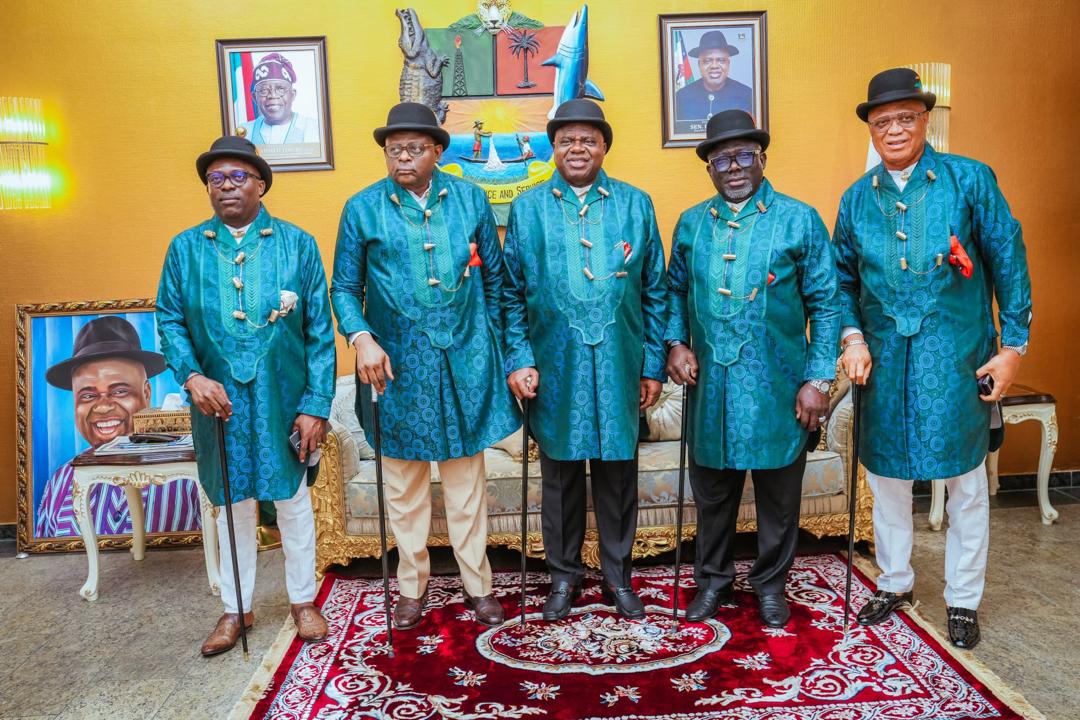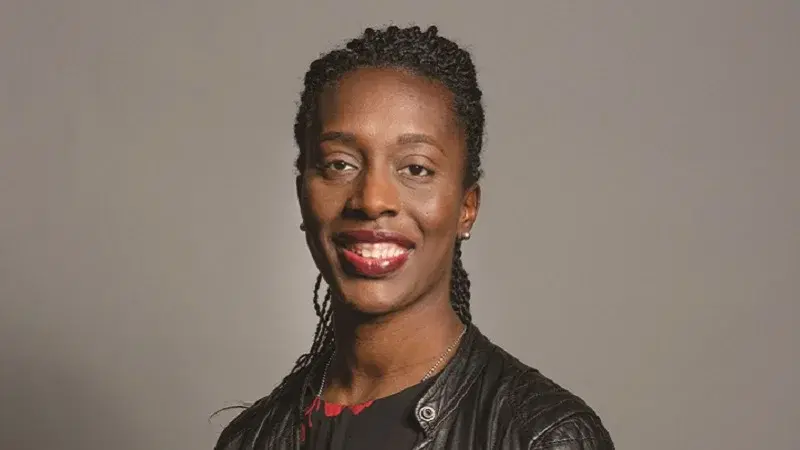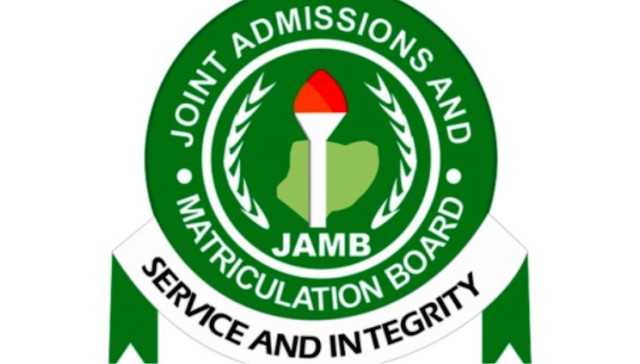News
Cabinet Nominees: Lagos Assembly Alleges Plan To Attack Speaker, Others …Says No Amount Of Intimidation’ll Cow Lawmakers
The Lagos State House of Assembly has alleged that there were plans by some unnamed persons to attack its Speaker, Rt. Hon. Mudashiru Obasa, and other lawmakers over the recent screening and rejection of some cabinet nominees sent by Governor Babajide Sanwo-Olu.
Speaking during plenary last Monday, Obasa stressed that the House would not succumb to any form of intimidation, including “sponsored protests by some civil society groups and activists” as its action was “in tandem with the constitution.”
“Before today, I had been reliably informed of the plan to attack the Speaker based on the decision of the House concerning the nominees of the governor, particularly the rejected ones,” Obasa revealed, adding that he has been inundated with calls from people and members of the House.
The Speaker also said the House had refrained from revealing all that it discovered during the screening of the nominees while warning that “those who live in glass houses should be conscious not to throw stones,” maintaining that it would not spill its discovery during the screening to the public.
Regarding insinuations that all was not well between the governor and the House, Obasa said, “There is this erroneous belief that we are waging a war against the governor. There is no basis for me and the House to fight the governor. I will continue to say that the governor is a brother and colleague in the Lagos project and service to the people of our state.
“The governor and I have been around in the system for long. While he was SA to the former Deputy Governor, Femi Pedro, I was in this House as Chairman, Committee on Rural Development. He was SA on Establishment and Pensions and I was Chairman, House Committee on Public Accounts (Local Governments). While he was heading LSDPC, I was Chairman, Committee on Economic Planning and Budget. Then, I became the Speaker and when he became the Governor, I remained the Speaker. So it’s been a long journey together.
“But I wonder why anytime the House says no to a particular request of the governor, it is taken by some people to mean there is a fight with the governor. This House has passed so many resolutions that the Executive arm refused to carry out, but the people don’t see that as something to talk about and the House does not raise eyebrows. So, I don’t know what brings the erroneous belief that the House is fighting the governor, who is our brother and who we will continue to work with”.
Obasa noted that while the House has its constitutional backing on its decisions, the same goes for the state governor.
He added that the House had its reasons for saying “no” to some of the commissioner-nominees sent by the governor.
“However, we have a constitutional responsibility. Just as the Governor has the responsibility to inform the House about his nominees, the House also has the responsibility to say ‘yes’ or ‘no’ which we have exercised by confirming some and denying some and we have our reasons for saying ‘no’ to some of the nominees.
“The House, as a body, has refrained itself from exposing what it discovered during the screening and we are not going to be forced to spill to the public.”
Commenting on the rejection of the immediate-past commissioner for health, Prof. Akin Abayomi, Obasa said considerations went beyond his efforts in the fight against COVID-19 which he described as an isolated issue in the challenged health sector of the state.
“Before Prof. Abayomi, there were Leke Pitan, Dr. Jide Idris and others. COVID-19 was an isolated case that was considered. Before COVID-19, we had Ebola which was also taken care of under Babatunde Fashola.
“Beyond all these, we are the representatives of the people, their mouthpieces, eyes and ears. The health sector of Lagos is not just about COVID-19. We have general hospitals and other healthcare centres around the state. What can be said about them?
Before Engineer Aramide Adeyoye, we also had Engineer Ganiyu Johnson and Dr. Obafemi Hamzat as Commissioner for Works and under whom the Ikoyi-Victoria Island link bridge was built while Babatunde Fashola was governor. Under Asiwaju Bola Tinubu as governor, there was massive infrastructural development too.
“So, we must stop making allusions concerning some things we do not understand. They mentioned the former Commissioner for Information, Gbenga Omotosho, and his experience. But how about actions in office?” Obasa asked.
The Speaker added that as a politician whose party is in power, the priority of those in government should be the interest of the people.
He urged those planning to sponsor actions against the House to realise that protests and sponsored articles would not make the House rescind its decision.
“The civil society that is threatening to protest should do so because it is a constitutional right. But we are not going to be threatened or intimidated. We have said no, but if there is a convincing or germane reason for us to reverse our decision, we will, but not by threats.
“It is because we are successful as politicians that is why the technocrats are being appointed. And to our own estimation, if they have not done well, we have the right to say no and we have said no”, he said.
Obasa added, “We don’t want instigation and conflicts. The Executive and the House are working together. We are brothers and colleagues; we will continue to work together but we need to caution fourth columnists not to instigate any crisis. And those that are living in glass houses need to be careful”.
News
Let’s Approach Regional Development Issues Differently – Fubara …As S’South Govs Host Fubara To 50th Birthday Celebration

Rivers State Governor, Sir Siminalayi Fubara, has sued for a change in the current approach adopted by South South Governors in their pursuit to achieve holistic regional development and economic prosperity.
The governor insisted on de-emphasis in vested individuals’ political interests while looking at the bigger picture of achieving enduring regional integration that will strengthen unity of purpose to change the trajectory of development in the region.
Fubara made the appeal during the meeting of Governors of South-South States, under the auspices of BRACED Commission, at the Bayelsa State Government House in Yanagoa on Tuesday.
This was contained in a statement by the Chief Press Secretary to the Governor, Nelson Chukwudi.
BRACED is an acronym for Bayelsa, Rivers, Akwa Ibom, Cross River, Edo and Delta.
He said: “I want to appeal that if we have to succeed in this drive, we need to keep our political differences aside and understand that the struggle, as at today, is for posterity, for the development of our region.
“It is really sad that in Niger Delta that is the economic base of this country, the construction of a road that you tagged ‘East-West Road’ could be an issue, that we need to beg, protest, and complain to get it fixed. I don’t think it is proper.”
Governor Fubara stated that it is not that the federal authorities do not understand that Niger Delta needs the road but quickly added that they have seen that even the people of the region do not take themselves seriously.
The governor said the moment Niger Delta people stopped playing to the gallery, and place value on themselves, outsiders will have no option than to accord the region and its people due regard.
Fubara said: “On my part, I want to say this: This is not the first time we are meeting. For me, I followed the course of the region meeting in a forum that we tagged “BRACED Commission.”
“BRACED Commission is also one of the bodies that was constituted at that time to support and work out development strategies for this region. But what I am seeing today is just limiting this meeting to only BRACED COMMISSION.
“We need to widen the scope where other leaders of the region should be part of the discussion of the development of the region, and I think this is the direction that will help the region.”
Reading the Communique of the meeting, the new Chairman of the Forum of Governors of South-South States, and Governor of Bayelsa State, Senator Douye Diri, said they support the Federal Government Tax Reform Bills, and urged President Bola Tinubu to extend the Value Added Tax (VAT) sharing percentages to oil and gas derivation.
He stated the Forum’s request to the Federal Government to urge relevant stakeholders and agencies to extend remediation of polluted environment ongoing in Ogoni land to other impacted communities and States in the region.
Governor Diri also said that the Forum resolved to establish a structural regional security network to enhance safety and security, foster stable Niger Delta region conducive for economic growth and prosperity.
Highlight of the event was the hosting of Governor Fubara to a surprise 50th Birthday celebration by the Governors of South-South States at the Government House in Yenagoa.
News
Fubara Lauds Tinubu For Setting Up Education Load Fund … Vows To Ensure Rivers Benefit Maximally From Scheme

The Rivers State Government has applauded President Ahmed Bola Tinubu for conceiving the idea of setting up the Nigeria Education Loan Fund (NELFUND) which has opened up opportunities for youths to acquire tertiary education irrespective of their financial status.
Rivers State Governor, Sir Siminalayi Fubara, gave the commendation while playing host to a delegation from NELFUND who came on an advocacy visit to the Government House in Port Harcourt on Tuesday.
Represented by his deputy, Prof. Ngozi Nma Odu, Governor Fubara said in developed countries it is common for people to go through school with loans which they sometimes pay all throughout their lives, noting that “for us, it is more accessible and more friendly because you would be required to pay back the loan two years after your National Youth Service.
“It is a win-win situation; it is a situation where the youths in Nigeria should not say because my parents are poor or passed away I cannot improve on my educational growth. This offers them a golden opportunity and I am glad you came for this advocacy.”
The governor urged NELFUND to intensify its advocacy to let the people know how they can benefit from it, adding that it is more important when talking about vocational institutions.
“If you look at the developed countries it is people that went to the vocational schools that make so much money, because it is pricey to get somebody to do anything, we need to instil this into our people, our youths, because people sometimes tend to look down on people that went to vocational schools, it should not be,” he said.
Fubara expressed delight with the NELFUND programme and assured that the State Government would do whatever it can to ensure Rivers State benefits maximally from the scheme.
In his remarks, the Managing Director and Chief Executive of NELFUND, Dr. Akintunde Sawyer, informed the governor that they were in Rivers State to seek the support of the State Government towards the loan, stressing that President Tinubu has directed them to ensure no Nigerian student who has the ability and desire to get educated at tertiary level is denied the opportunity due to lack of funding.
He explained that the scheme provides interest-free loans to students who apply, adding that these loans are not repayable until two years after their Youth Service when they must have gotten a job.
News
UK Appoints British-Nigerian As Trade Envoy To Nigeria

A British-Nigerian politician, Florence Eshalomi, has been appointed as the United Kingdom’s trade envoy to Nigeria.
Her appointment makes Eshalomi the second Nigerian to hold the position.
Confirming her appointment on X on Tuesday, she wrote: “It is an honour to have been appointed as the United Kingdom’s Trade Envoy to Nigeria.
“I’m looking forward to building on my close ties with Nigeria to promote a strong and flourishing economic relationship between our two great nations.
“I am looking forward to strengthening the UK’s relationship with Nigeria to explore shared growth and opportunities for both countries.”
Announcing the appointment in a statement on Tuesday, Jonathan Reynolds, the UK’s Business and Trade Secretary, said the decision was aimed at attracting investment into the UK and boosting economic growth.
“I’ve launched a new team of trade envoys who will use their experience, expertise, and knowledge to unlock new markets around the world for British businesses, attract investment into the UK, and ultimately drive economic growth,” Reynolds said.
Eshalomi, 44, is an MP representing the Vauxhall and Camberwell Green constituency.
She holds a Bachelor of Arts (Hons) in Political and International Studies with Law from Middlesex University.
-
Business3 days ago
Nigeria Wants Higher Quota From OPEC
-
News19 hours ago
#EndBadGovernance Protesters Storm Court, Demand Sowore’s Release
-
Nation16 hours ago
Plane Crash-Lands, Tyre Bursts Upon Landing In Kano
-
Business3 days ago
WEF: We Have Over a Billion Barrels of Oil Reserves … Tinubu
-
News19 hours ago
Border dispute: UN lauds Nigeria, Cameroon for implementing ICJ’s ruling
-
Business15 hours ago
S’Korean Airplane Catches Fire … 176 Passengers evacuate
-
Nation3 days ago
Soldiers Destroy 13 Illegal Refineries, Arrest 15 Oil Thieves
-

 News21 hours ago
News21 hours agoViolation: JAMB Suspends Law Programme In 8 Institutions

